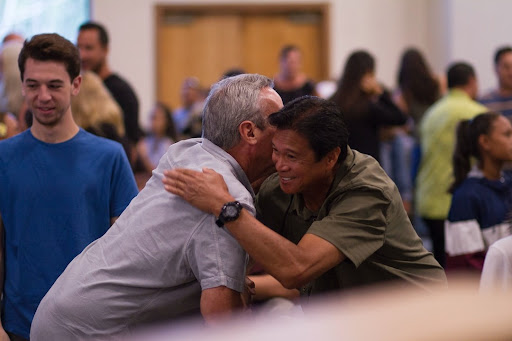Gratitude is a universal human emotion. We all feel it and we all express it in different ways. For example, some people are more likely to show their gratitude through words than others. However, the benefits of expressing gratitude are undeniable. Expressing gratitude can improve your mental health and strengthen relationships with other people. It’s also been shown that practicing gratitude can help rebuild broken relationships after addiction recovery.
What Is Gratitude?
Gratitude is a powerful emotion that can be used to help you recover from addiction. If you’re struggling with an addiction and are looking for ways to stay sober, gratitude will help you feel better about yourself and your life.
Gratitude is defined as feeling thankful and appreciative of what you have in your life. It’s also the act of expressing thankfulness through words or actions, such as:
- Saying “thank you”
- Writing letters expressing appreciation for someone who has helped you out in one way or another
- Volunteering at homeless shelters and soup kitchens
These are all examples of gratitude expressed through action.
Gratitude In Addiction Recovery
You may have heard that gratitude can help you feel more positive emotions, and that’s true. However, it also goes much deeper than that. Becoming familiar with the benefits of gratitude throughout addiction recovery can be instrumental for lasting sobriety and happiness.
Increases Optimism
Gratitude increases happiness by increasing optimism; people who are grateful for their lives and what they have experienced are more likely to see their future in a positive light. This leads them to pursue goals with greater determination, which helps improve their overall quality of life.
Increases Sense of Purpose
Gratitude can also increase the sense of meaning in life by helping us connect with others through acts of kindness, charity work, or volunteering our time at a shelter for homeless people. By connecting with others in this way, we develop stronger social ties and feel like we’re contributing something meaningful to society. These two factors strongly correlate with higher levels of happiness. Gratitude also helps reduce anxiety and depression because when we’re thankful for what we have rather than focusing on what we don’t, it gives us perspective on our problems instead of letting them overwhelm us completely.
Improves Physical and Mental Health
Gratitude can also help you feel less stressed, which is good for your physical health. Gratitude is linked to lower levels of cortisol (the stress hormone), as well as higher levels of oxytocin and dopamine, two chemicals involved in regulating mood and behavior.
The connection between gratitude and physical health goes beyond just reducing stress. A study published in Personality and Individual Differences found that participants who kept a daily journal of things they were grateful for experienced fewer aches and pains than people who didn’t write about their blessings every day.
Fosters Self-Worth and Self-Esteem
It’s easy to feel bad about yourself when you are struggling with addiction, but practicing gratitude can help you see your strengths and weaknesses. It allows you to see the world in a different light, which could be just what you need to get back on track with life. Gratitude also helps focus on the present moment instead of focusing on past regrets or future worries that may not come true anyway.
Helps Repair Broken Relationships
Gratitude has also been shown to improve relationships. Expressing gratitude can help rebuild broken relationships, improve communication, and reduce conflict. A study published in Europe’s Journal of Psychology found that gratitude promotes positive social bonds, which results in better mental health overall.
Expressing gratitude helps us to feel more connected to others. It also helps us to be more appreciative of the relationships we have, and it can even make those relationships stronger.
Expressing Gratitude in Addiction Recovery
There are many ways to express gratitude. One way is to write a thank-you note, which can be sent to anyone in your life who has given you something or helped you in some way. This could be an old friend from high school who helped with your move into college, a co-worker who gave advice on how to deal with stress at work, or even someone who lives nearby who helped pick up some groceries when you were sick one day.
Another way is by writing down three things that are important to us. This may include:
- Our values, dreams, and goals for the future
- Things we appreciate about our lives right now
- What motivates us most
We can then reflect on these things every morning before starting our day by asking ourselves, “What am I grateful for today?” or again at night before going to bed so we end each day feeling positive about ourselves and optimistic about tomorrow’s possibilities!
Gratitude can play a large role in addiction recovery. If you find yourself struggling with this issue, it may be worthwhile to try journaling or other forms of expressing gratitude. You might also want to seek out support groups for those with similar problems who can help keep each other accountable as they work toward their goals together. Here at Buena Vista, we incorporate expressing gratitude into each treatment and recovery plan. Although it can feel awkward at first, expressing gratitude is an integral part of addiction recovery. If you or someone you love is struggling with an addiction of any sort, reach out to us.
You can contact us at (800) 922-0095, or visit any of our Arizona drug and alcohol treatment centers to start your recovery journey today.
CHANDLER
3033 South Arizona Avenue
Chandler, Arizona 85248
TUCSON
5151 East Pima Road
Tucson, Arizona 85712
SCOTTSDALE
8171 E Indian Bend Rd
Scottsdale, AZ 85250





